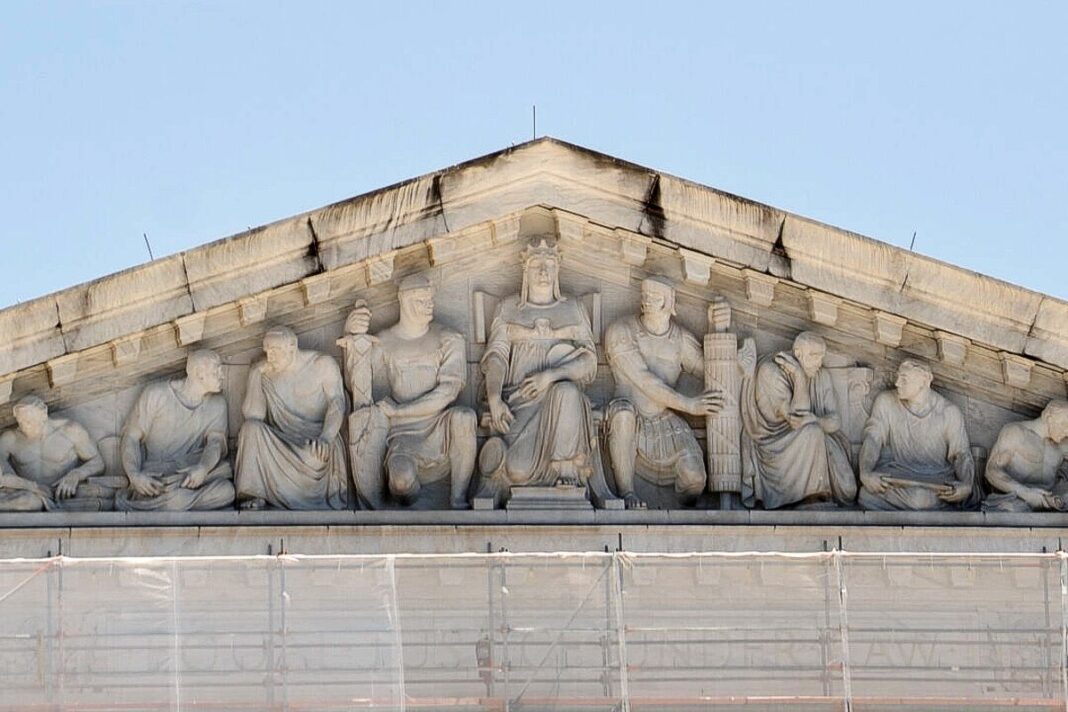A federal district court had ordered a second black-majority congressional district be created in Louisiana after finding black voters were underrepresented.
The U.S. Supreme Court on Oct. 15 seemed likely to limit the use of race-based districting during an oral argument concerning Louisiana’s congressional map.
At the same time, some justices on the nation’s highest court pushed back against the idea that discarding the use of race in drawing electoral districts was necessary or constitutional.
The outcome of the high-profile racial gerrymandering case—known as Louisiana v. Callais—could have an impact on the balance of power in the federal legislative branch. Gerrymandering is the manipulation of electoral district boundaries to favor a particular party or constituency.
Currently, Republicans maintain a razor-thin majority over Democrats in the U.S. House of Representatives. The congressional seat at the heart of the litigation is currently held by Rep. Cleo Fields (D-La.).
The legal issue is whether the creation of a second black-majority congressional district in the Pelican State violates the 14th or 15th Amendments. The 14th Amendment guarantees equal protection under the law. The 15th Amendment forbids the federal government and the states from interfering with voting rights based on a citizen’s race.
A federal district judge ruled that an earlier version of the state’s electoral map, which included only one black-majority congressional district, discriminated against black voters, who constitute almost one-third of the state’s population. The judge ordered the state to create a second black-majority district after finding that its failure to do so likely violated Section 2 of the federal Voting Rights Act of 1965.
Section 2 prohibits voting practices or procedures that discriminate based on race, color, or membership in a large language-minority group such as American Indian, Asian American, Alaskan Native, or American Hispanic.
Courts have held that the Voting Rights Act in certain circumstances allows states to take race into account when drawing electoral boundaries, but electoral maps drawn explicitly based on race are unconstitutional. The statute has been interpreted by the courts to forbid racial gerrymandering when it dilutes minority voting power.
Read Full Article on TheEpochTimes.com








